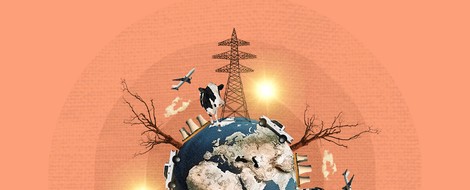Your podcast discovery platform
Curious minds select the most fascinating podcasts from around the world. Discover hand-piqd audio recommendations on your favorite topics.

piqer for: Climate and Environment Global finds Globalization and politics
I'm a freelance journalist, currently based in Madrid. I used to be a News Producer at CNBC in London before, but I thought a little bit more sun might do me good. Now I write for several news organizations, covering a range of topics, from Spanish politics and human rights for Deutsche Welle to climate change for La Marea.
What You Believe About Climate Change Reflects Who You Are – Not What You Know
Climate change is, in my opinion, the most important issue facing humanity this century. It's so big that the word 'unprecedented' has paradoxically become commonplace. Despite that, unless there's a climate-related disaster going on in the vicinity, there always seems to be a more pressing concern, and so, action is delayed. When action is indeed taken, people react (sometimes violently), as we're seeing in France these days. And that's when people don't deny the overwhelming evidence.
There's something wrong with climate communication, but what? This fantastic lecture by Professor Chris Rapley helps us understand it. With a very healthy dose of British tongue-in-cheek humor and a brisk pace, this hour-long masterclass (plus a 20-minute Q&A) is breezy and fun. The session took place on October 30 at the London School of Economics.
Professor Rapley starts with two quotes, to which he will return at the end of the lecture:
"It doesn't have to be true, it just has to be believed."and
"What you believe about climate change doesn't reflect what you know. It reflects who you are."
From this point, he showcases evidence to prove that climate change is already affecting our lives and our world system. We have seen it in Syria, where global warming acted as a catalyst of war, and we're seeing it now in Central America, where it's one of the factors driving the migrant caravans.
Unlike other fields of science, Rapley says, climate change is emotionally and ideologically charged. These dimensions make it a political issue, and cult-like dynamics appear, making facts irrelevant in front of the convinced denier (or dismisser). Calling scientists "alarmists" becomes a badge of belonging for a certain part of the population. How can this pattern be broken? The key is being aware of what you want your audience to do, not to know.
The slides used in this podcast are not indispensable, but certainly enrich the experience. They can be downloaded here.
